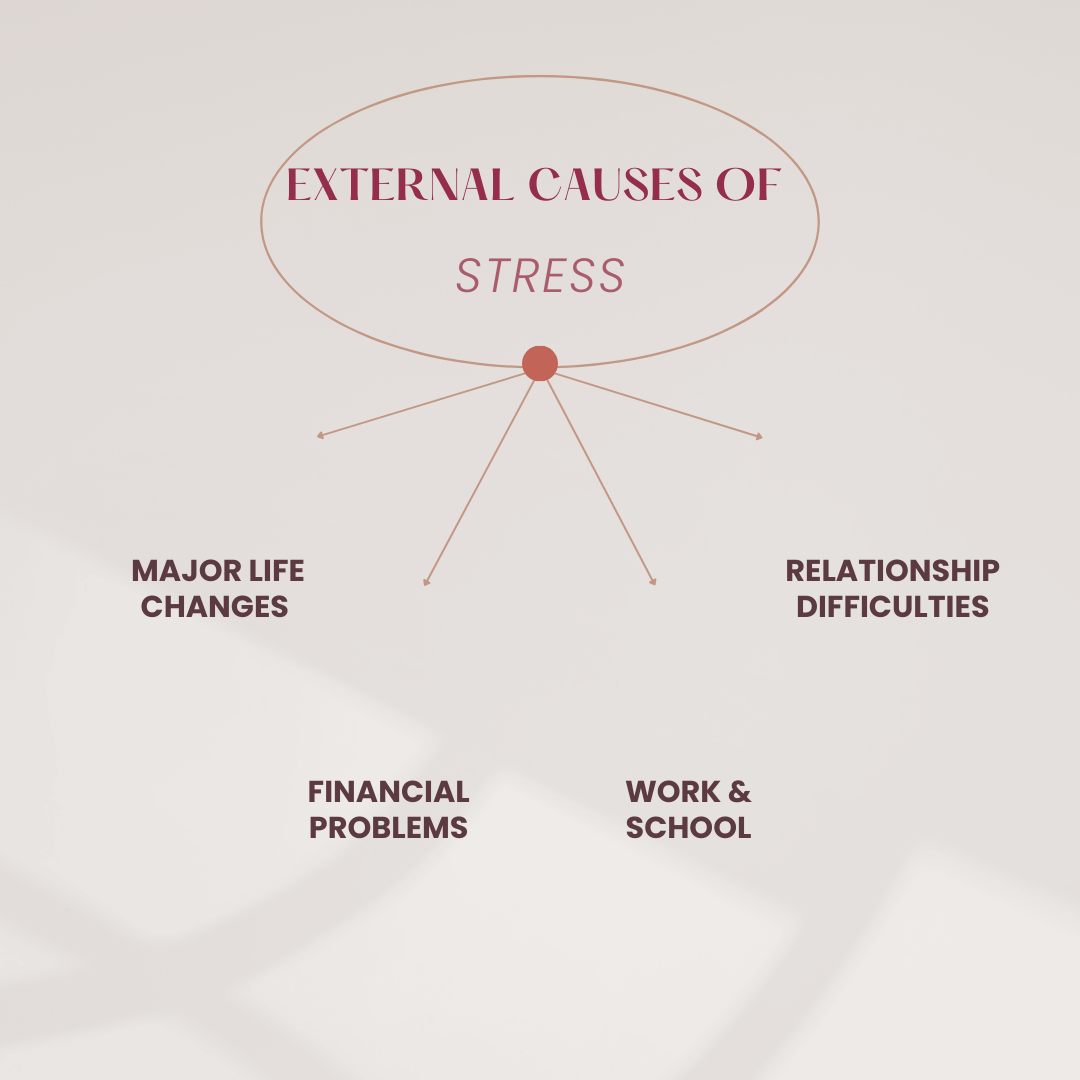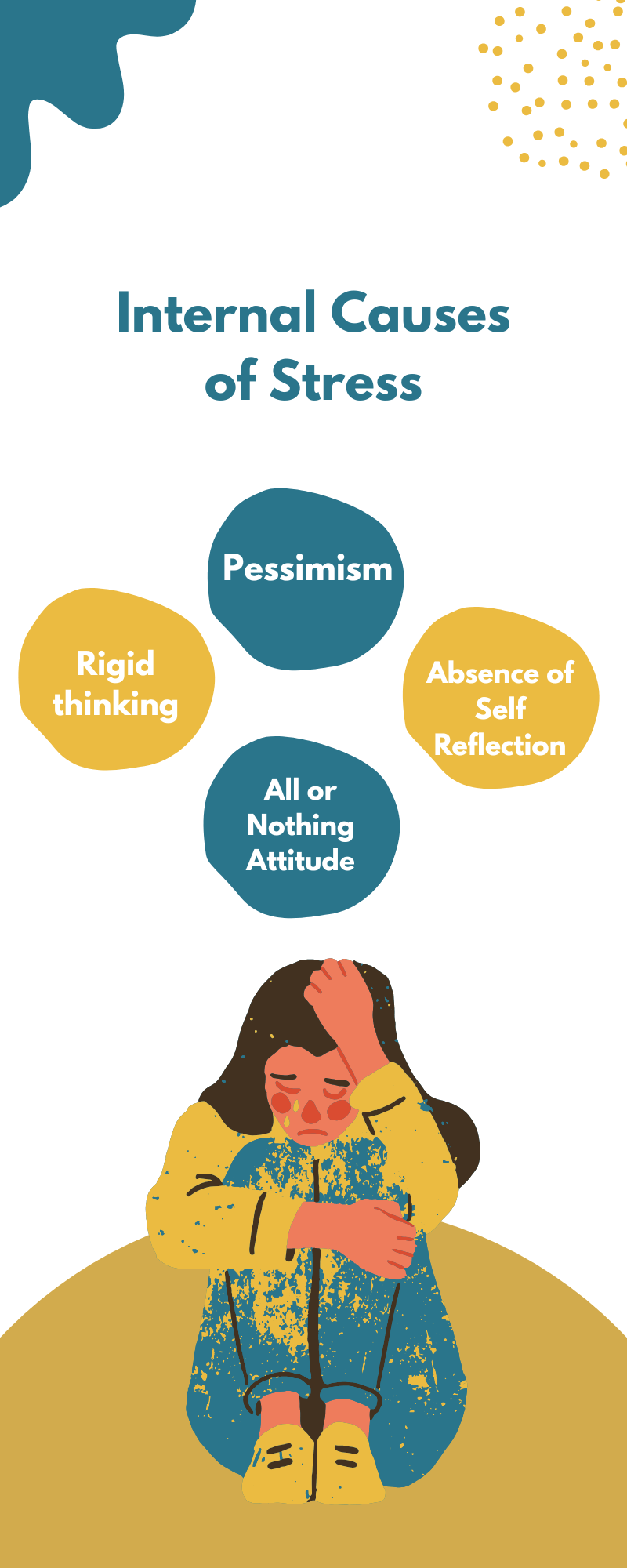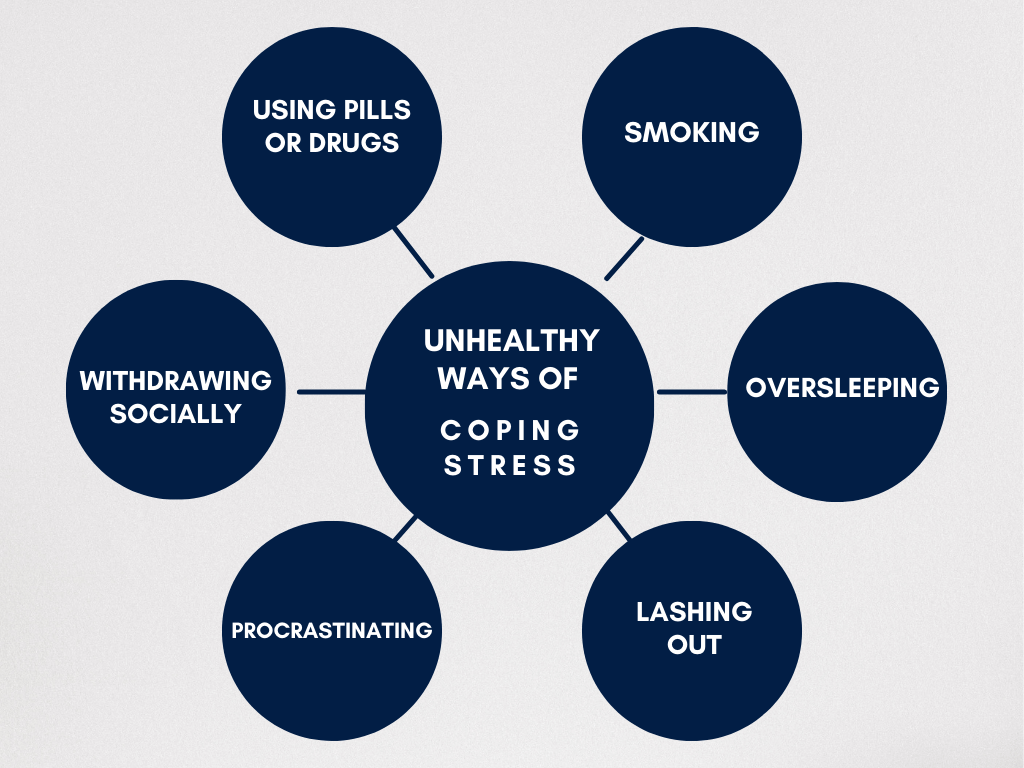What is Stress and a Stressor?
Stress is a response to threatening or challenging environmental conditions. The stimuli and situations a person faces, causing stress, are called stressors. A stressor can be a chemical or biological agent, an environmental condition, or an event that triggers stress in an organism.
For instance, stressors may include:
- Emotional stressors
- Family stressors
- Social stressors
- Work stressors
- Change stressors
- Pain stressors
- Phobic stressors
- Environmental stressors
Related: Stress Management Strategies
Types of Stress
Acute Stress
Acute stress is the most common form of stress among humans worldwide. It is a short-term, intense response to a specific event or situation, and arises from sudden demands. Hence, it deals with the pressures of the near future or the very recent past. Its symptoms include rapid heartbeat, sweating, short-lived intensity. Acute stress is often seen as bad, but it can actually be helpful. It motivates you to take action. However, excessive stress can lead to negative effects on physical and psychological health. Acute stress can be managed with coping strategies, relaxation techniques, and meditation. It is a normal part of our lives.
Chronic Stress
It is a persistent, long-term feeling of being overwhelmed by stress, arising from continuous pressure. Chronic stress is a persistent, long-term feeling of being overwhelmed by stress, arising from continuous pressure. Its symptoms include fatigue, insomnia, and depression, leading to serious health issues. Effective management involves identifying the underlying causes and adopting coping strategies.
Its symptoms include fatigue, insomnia, and depression, leading to serious health issues. Effective management involves identifying the underlying causes and adopting coping strategies.
Causes of Stress
External Causes of Stress

Internal Causes of Stress

Is Stress Linked to Illness?
For Instance, have you ever spilled coffee on your shirt five minutes before a big presentation? Or when you’re running late for an exam because of traffic. In moments like that, your brain’s command center — the hypothalamus — switches into high gear. It sends a signal to release stress hormones like cortisol and adrenaline, launching your body into “fight or flight” mode. Suddenly, your heart pounds, your breathing speeds up, and your muscles tense. Remember, all these are perfectly natural responses and are significant survival mechanisms when you’re facing a threat or experiencing discomfort due to any internal or external stimuli.
Physiological Effects of Stress
Does Stress affect the body?
Yes, when the stress response is triggered again and again by daily pressures, it does more than exhaust the mind. Over time, it quietly harms the body. Constant stress puts the body under repeated strain, forcing it to remain in a state of alert. This ongoing wear and tear weakens body systems and makes the body more vulnerable to illness. As a result, long-term stress can lead to several health problems, including:
- Heart palpitations
- increased blood pressure
- hypertension
- stroke
- weak immune system
- muscle tension
- menstrual problems
- peptic ulcers
- Migraine and headaches
- insomnia
- Fatigue
- Endocrine disorders such as diabetes mellitus
- Alzheimer’s disease due to inflammtion-key part of stress response
Stress and Psychiatric Illness
- Acute Stress Disorder
- Post Traumatic Stress Disorder
- Schizophrenia
- Depression
- Anxiety
- Bipolar Disorder
- Substance Abuse Disorder
Techniques for Stress Management: The Four A’s”
Avoid Unnecessary Stress
It is inevitable to encounter all types of stressors. However, a person may prioritize their to-do list based on the evaluation of ‘shoulds’ and ‘musts. Hence, daily stressors can be minimized. For instance, if you are stressed out because you can’t say no to people despite your busy schedule, you must learn how to decide what work you should do and what you should not- it’s important to learn how to set boundaries. Decide which tasks are essential and practice the art of saying no to unnecessary demands, whether they’re obvious or more subtle.
Alter the Situation
If you can’t avoid stressful events or emotions, try to change how you handle them by being more assertive instead of keeping everything bottled up. Speak up about your feelings and concerns in a respectful way—it’s healthier than staying silent and letting stress build. If certain people or situations consistently drain your energy, stepping back or limiting your exposure is okay. Don’t be afraid to say no or delegate tasks when you’re overwhelmed—it’s not selfish; it’s smart self-care. Hence, be proactive. Instead of waiting for stress to take over, look for practical ways to change the situation because sometimes, a minor shift in your approach can make a huge difference.
Accept the Things You can’t Change
Accepting things that are beyond your control is a healthy way to cope with stress. Embracing others’ points of view and perspectives helps you face reality without getting overwhelmed by disagreements or changes. Additionally, it’s not only external changes that affect you; internal changes within yourself can also cause stress. Therefore, reflecting on your strengths, limitations, and vulnerabilities is important. Honest self-reflection can help you accept and embrace change with a positive mindset, which is essential for effective stress coping.
Adapt to the Stressor
If you can’t change the stressor, change how you respond to it. Try to look at the situation from a more positive or constructive perspective instead of letting it overwhelm you. Ask yourself: Will this matter in a few weeks or months? If the answer is no, it’s probably not worth your stress. Shift your focus to your positive actions—save your time and energy, and invest them in becoming a stronger, more positive version of yourself. Also, take a moment to reflect on the good things in your life. Think about your strengths, your achievements, and the small wins that make you feel proud. Gratitude can shift your mindset and help you stay grounded, even in tough moments.
Recognizing Unhealthy Ways of Coping with Stress

8 Healthy Ways to Cope with Stress


Restaurant AI billing software isn’t just another tech trend – it’s the difference between spending your evening battling spreadsheets and actually having a life outside your establishment.
https://starpos.info/how-ai-powered-billing-software-is-revolutionizing-restaurant-management/
I love it . I would like to learn more
Thanks for information